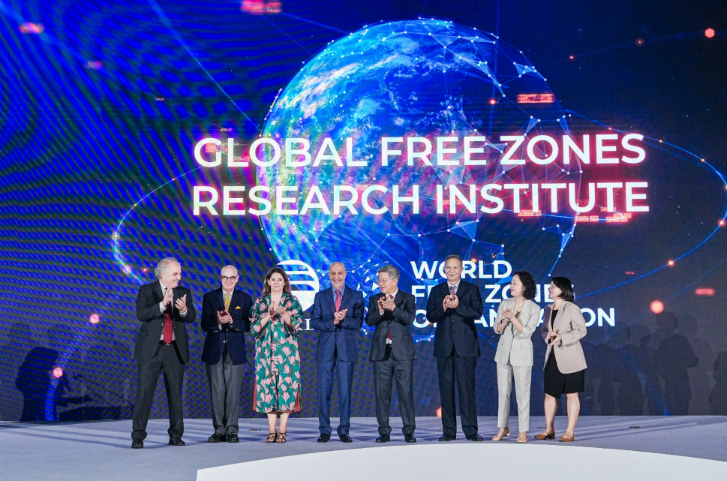
Technology
Day Two of 11th World FZO Congress Emphasizes Digitization, Sustainability, and Global Cooperation in Shaping the Future of Free Zones
The second day of the 11th World Free Zones Organization (World FZO) Annual Congress continued at the Hainan International Conference and Exhibition Center, focusing on the transformative role of digitization, sustainability, and global cooperation in advancing free zones worldwide.
Key discussions explored how technological innovation, renewable energy adoption, and cross-border partnerships can redefine free zones as engines of global trade and economic resilience.
The day featured in-depth sessions on the digitization of trade corridors, the impact of the OECD Global Minimum Tax, and the strategic role of free zones as regional trade gateways. Experts and industry leaders emphasized how digital transformation, multimodal infrastructure, and sustainable logistics are vital to maintaining competitiveness in a rapidly evolving global economy.
Sustainability and Innovation at the Forefront
Sustainability took centre stage with sessions addressing the transition to net-zero emissions through renewable energy, circular economy models, and green financing. Speakers highlighted decarbonization as both an environmental necessity and a key driver of long-term competitiveness.
Parallel events included the BRICS SEZ Meeting, focusing on innovation-led cooperation among emerging economies, and the Executive Leadership Program, which examined the evolution of smart, green, and tech-driven zones.
Launch of the Global Free Zones Research Institute
A major highlight of the day was the launch of the Global Free Zones Research Institute, an independent, non-profit international think tank dedicated to advancing research, policy dialogue, and capacity building for free zones worldwide.
His Excellency Dr. Mohammed Al Zarooni, Chairman of the World Free Zones Organization, said:
“The inauguration of the Global Free Zones Research Institute marks a defining moment for global free zones. It will empower free zones to drive sustainable growth and inclusive prosperity worldwide.”
He added that the Institute will provide policy recommendations, organize expert panels, and deliver specialized training programs to help free zones embrace digital transformation and sustainability.
Cross-Border Data Flows and Cooperation Agreements
The second day also saw the signing of a Memorandum of Understanding (MoU) between six international free zones and five economic and technology zones in China’s Hainan Province.
Signatories included:
-
From Free Zones: Dubai Integrated Economic Zones Authority (UAE), PIROT Free Zone (Serbia), Tatu City Free Zone (Kenya), Luanda Special Economic Zone (Angola), Santa Fiesta Free Zone (Argentina), and the General Authority for Investment and Free Zones (Egypt).
-
From Hainan Province: Haikou Jiangdong New Area, Haikou Fosing Industrial Internet Park, Hainan Resort Software Community, Sanya Yazhou Bay Science and Technology City, and Overseas Returnees Town Lingshui.
The agreement aims to strengthen cooperation on cross-border data flows, establishing secure mechanisms for data exchange and fostering innovation-driven growth aligned with international privacy and cybersecurity standards.
Dr. Juma Al Matrooshi, Assistant Executive Chairman for Investments and Partnerships at DIEZ, stated that the MoU aligns with Dubai’s digital economy vision, reinforcing the city’s role as a hub for smart technologies and global data connectivity.
“This partnership supports the UAE’s commitment to advancing its national digital economy agenda and enhancing Dubai’s position as a leading centre for innovation and knowledge,” said Dr. Al Matrooshi.
Conclusion and Global Outlook
By its second day, the Congress had gathered over 1,100 participants, including global policymakers, business leaders, and industry experts, under the theme “Zones: Gateways to Global Prosperity, Trade, and Sustainable Innovation.”
The event continues to serve as a global platform for exploring how free zones can contribute to sustainable economic growth, foster international cooperation, and support strategic development initiatives such as China’s Free Trade Port program.
📢
Advertisement Space
750x200 pixels
Click to book this space
Comments (0)
Please log in to post a comment
Login to CommentNo comments yet. Be the first to share your thoughts!